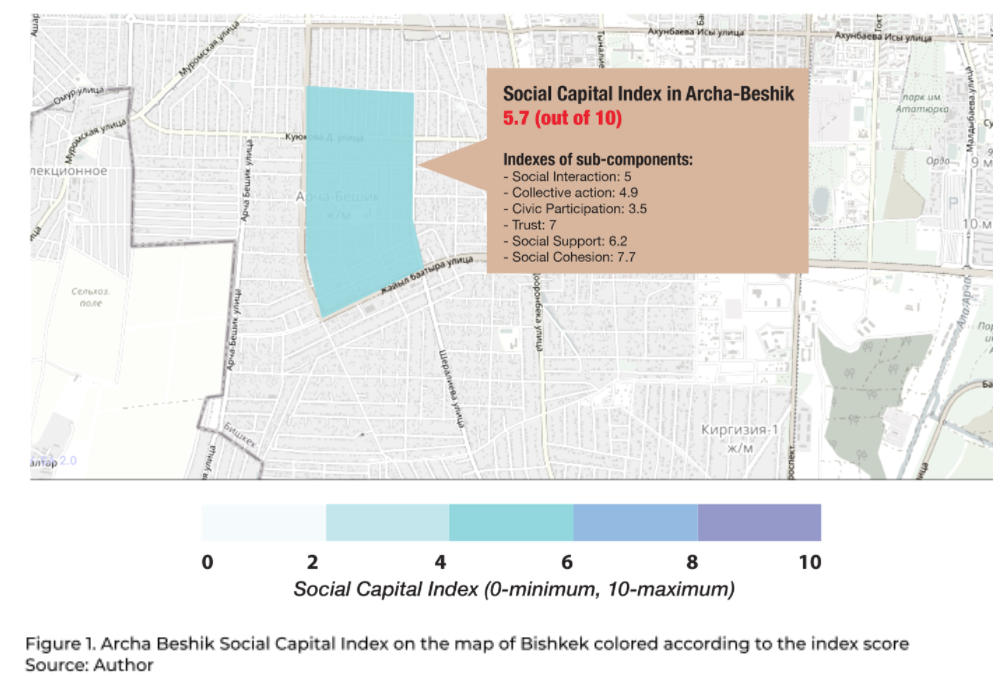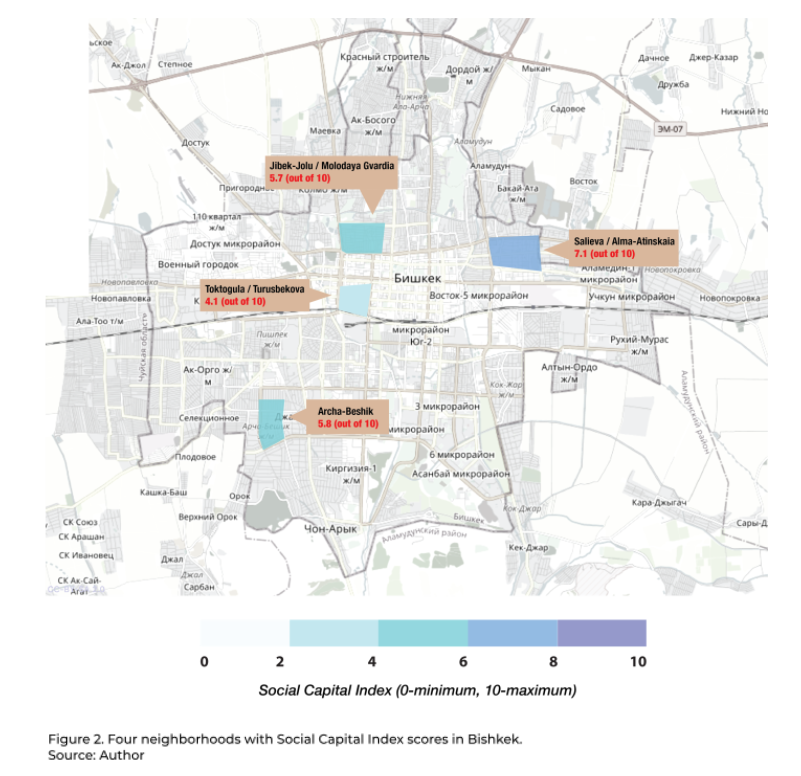Social Capital
Developing Methodology to Measure Social Capital in Urban Communities in Kyrgyzstan
Tatiana Efremenko
A review of the social capital literature revealed many ways to measure social capital, as well proved that there is no agreed-upon best method or any single instrument that captures all aspects of social capital. As social capital plays a vital role in our cities, there is a need to develop a reliable tool to measure it and produce an index to allow comparisons between areas. Urban Social Capital Assessment Tool (U-SCAT) was developed based on the A-SCAT methodology with some survey questions taken from other methodologies, but significantly modified and adapted to the cultural context of Kyrgyzstan.
The pilot study was conducted in the Archa-Beshik neighborhood, as well as two neighborhoods in Bishkek via online forms. Study participants included 7 residents of different neighborhoods in Bishkek city for cognitive interviews, as well as 32 participants in the Archa-Beshik neighborhood, and 28 respondents in the online survey. The expert interviews were conducted with 11 practitioners, researchers, and founders of the existing methodologies. The 17-item tool has demonstrated high internal consistency (Cronbach’s alpha α=0.91). Also, seven questions on demographic data are provided to allow descriptive analysis for researchers and practitioners. U-SCAT is a psychometrically valid and reliable tool to measure social capital in urban communities in Kyrgyzstan. It has the potential to be employed by policymakers, researchers, and government institutions, as well as it is ready for large-scale testing and validation.
Social capital has been the focus of many researchers and practitioners to assess its impact on the well-being of individuals and communities. However, due to multiple interpretations of the concept, it has resulted in a variety of ways to measure it across different contexts. To date, there is no social capital measurement instrument that has been developed and cognitively tested in urban communities in Kyrgyzstan. The study has been initiated with the hypothesis that social capital is in decline in Bishkek city. As a result of extensive migration, internal mobility, commercialization of public and private spheres, the society has become more heterogeneous and socially stratified (Miles, 2009), which makes it less able to form strong social connections and retain high levels of trust and societal norms.
Social capital has a number of important benefits to activate individual and societal assets to achieve healthy and prosperous communities. In addition, social capital is a prerequisite for social innovation, which aims to solve current problems taking into consideration societal, environmental and economic implications. Social capital has been long neglected within both academic and institutional dialogues in Kyrgyzstan in particular, and the Central Asian context in general, which has resulted in a limited understanding of its potential to increase the quality of life in communities.
This study attempted to answer two questions: 1) What are the components of social capital in the urban context in Kyrgyzstan?, and 2) What is a reliable and robust methodology to measure social capital in urban communities? The purpose of this study was to identify a manageable list of components of social capital in urban communities, develop instruments to measure them, and construct an index scale to allow comparison between different urban neighborhoods.
To download the report BY THIS LINK >>.


